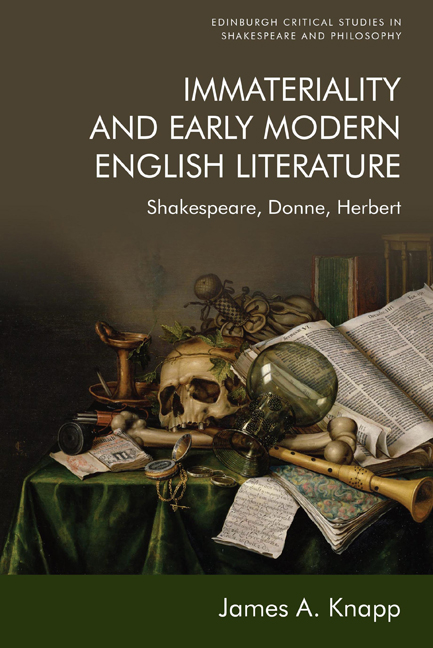10 - ‘Neither Fish nor Flesh, nor Good Red Herring’: Phenomenality, Representation and Experience in The Tempest
Published online by Cambridge University Press: 10 October 2020
Summary
… one might think that I hold that man lives only in the realm of the real. But we also live in the imaginary, also in the world of ideality.
Maurice Merleau-Ponty, The Primacy of PerceptionPerhaps more than any other Shakespeare play, The Tempest seems to invite symbolic or allegorical interpretation. We sense that what we see is not necessarily what we are supposed to get. The implication is that the play is a kind of thought exercise. We are asked to convert the overloaded sensorium on stage – replete with music and spectacle – into ideas. In this chapter, rather than try to argue for what those ideas are supposed to be, to determine the play's message, moral or lesson, I explore how Shakespeare puts a particular kind of theatrical pressure on the intertwining of perception and ideation in The Tempest. Shakespeare's Duke Theseus might call these two mental faculties ‘apprehension’ and ‘comprehension’, the former involved in seizing phenomena given to experience, and the latter focused on the subsequent experience in which the first is translated into coherent conceptual terms. Rather than seeking to determine what various characters, events or references might represent, I am interested in how the playwright's manipulation and destabilisation of the representational options becomes a central focus of the play. As audience members, we are consistently invited to witness characters adjusting or reversing their sense of what is given on the island – what the environment offers, or affords, phenomenally speaking. In other words, I argue that the play repeatedly stages moments in which phenomenal experience is inadequately represented in intelligible terms, foregrounding the difficulty of reconciling mental and embodied experience as long as they are considered to be distinguishable. As we are invited to witness the adaptation of the characters to their environment, we are also invited to adjust our own sense of what is given in the play. The play's repeated thematic reversal of what appears to be the case produces a perceptual dynamic that makes comfort in thought difficult at best. Rather than allowing for a settling of our senses through cognitive understanding, The Tempest continues to unsettle.
- Type
- Chapter
- Information
- Immateriality and Early Modern English LiteratureShakespeare, Donne, Herbert, pp. 358 - 390Publisher: Edinburgh University PressPrint publication year: 2020



